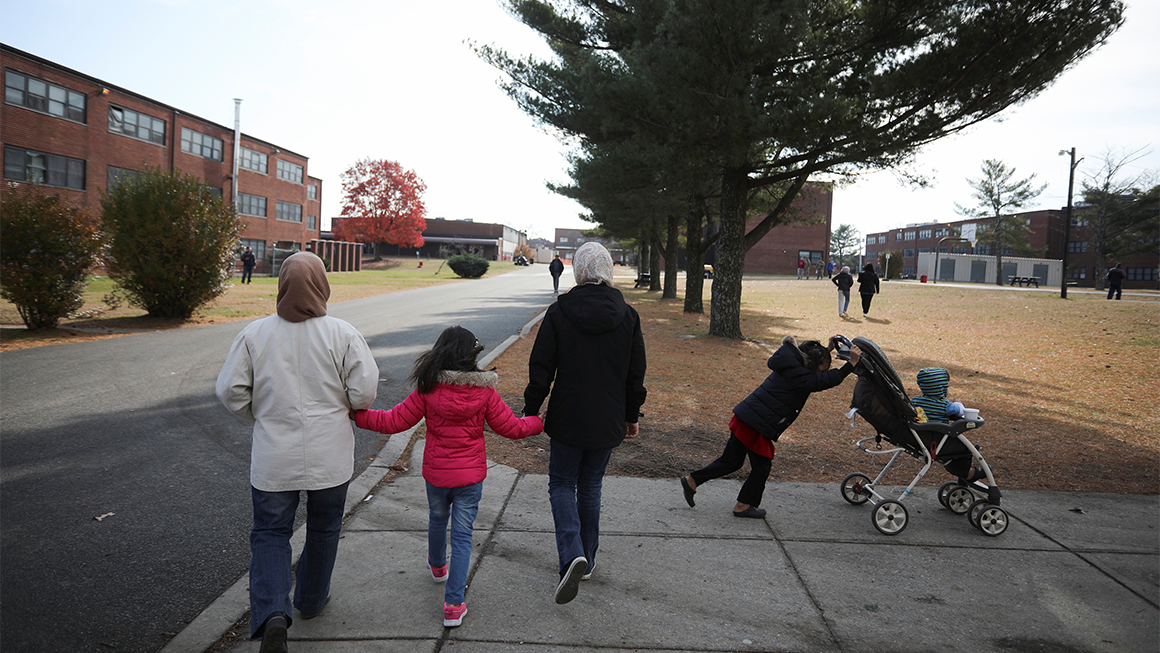
On June 9, new sweeping travel restrictions went into effect. They limit the entry of people arriving on permanent or temporary admissions visas from 19 countries, citing potential national security threats. Recent reports indicate that 36 additional countries, primarily in Africa, may soon be added.
These travel restrictions did not come as a surprise. President Trump issued a series of similar orders during his first term, when he primarily restricted people from Muslim-majority and African countries from entering the US. Although the first two efforts were blocked on the grounds of religious discrimination, the US Supreme Court upheld (PDF) the third, providing a basis for the current proclamation and making it less likely that it will be blocked in federal court.
Though the new travel restrictions focus on keeping people out, they also place particular hardship on immigrants already in the US, who now face even greater barriers to reuniting with loved ones from the affected countries.
Families are often separated through immigration, as political, economic, and logistical reasons prevent them from moving together. Reunifying with a spouse, child, sibling or parent can take years or decades because of annual limits on green cards and the significant financial means needed to cover fees and legal services. The travel ban will add to that waiting period, cutting off thousands of families from permanent, and in some cases even temporary, reunification with family members, causing mental and physical distress and delaying support for families in the US who often rely on the help of extended family members.
Who are the travel bans affecting?
Nineteen countries are under a full or partial travel ban. The partial ban restricts nationals from 7 countries (Burundi, Cuba, Laos, Sierra Leone, Togo, Turkmenistan, and Venezuela) from entering the country on permanent immigrant visas or temporary visas for the purpose of business, tourism, or education. The full ban restricts nationals from 12 countries (Afghanistan, Burma, Chad, the Republic of the Congo, Equatorial Guinea, Eritrea, Haiti, Iran, Libya, Somalia, Sudan, and Yemen) from entering the country for any reason.
There are narrow exemptions for the issuance of new visas, including for Afghan Special Immigrant Visa holders; certain athletes, diplomats, and adoptees; certain ethnic and religious minorities facing persecution in Iran; and immediate family members (child, spouse, or parent) of US citizens with “clear and convincing evidence of identity and family relationship (e.g., DNA).”
Beyond those restricted from entering the US, the ban also affects US citizens and lawful permanent residents’ (LPRs’) ability to reunite with family members from the affected countries. US immigration law allows immediate and extended family members to reunite through various pathways. These processes are long and burdensome, as the waiting period is dependent on several factors. But for many families, these pathways are the only option for reuniting permanently in the US.
The travel ban will further delay families’ reunification by deeming the extended relatives (siblings and adult children) of US citizens and the immediate relatives (spouses and children) of LPRs ineligible for new visas, extending separation of core family units, many of whom are critical to (PDF) providing social and economic supports to relatives or caring for aging parents.
How does the travel ban affect family reunification and well-being?
Growing evidence shows that when families are allowed to reunite, there are a range of interpersonal and societal benefits. Family networks support newcomers’ integration, helping them navigate unfamiliar systems and obtain employment. This helps incorporate them and has a positive impact (PDF) on local economies. Research shows those who arrive through family-based immigration invest in their education and experience high earnings growth over time. These family members are often critical to the informal care economy (PDF), providing unpaid, culturally matched support by caring for younger children in the household, for example, which can facilitate other household members’ increased economic participation in their local economies.
Barriers to family reunification are a significant source of distress for immigrant families, which is particularly disruptive for children. Studies have shown that immigration-related separation from key family members negatively affects children’s academic progress and increases their chance of dropping out of high school (PDF). Similarly, under the first Trump administration, the travel ban negatively affected the mental and physical health of recent immigrants from countries that had been banned.
Blocking family reunification counters long-standing US immigration policy
Family reunification has been a cornerstone of US immigration policy for the past 60 years. The criteria and processes for determining who is eligible to sponsor and be sponsored are established by the Immigration and Nationality Act and have favored family reunification by allocating a majority of permanent visas for this purpose. It replaced a set of discriminatory policies that restricted people based on their national origin.
The travel ban is the latest effort to block a legal immigration pathway that, along with other effects, obstructs family unity. US citizens and LPRs will be denied the opportunity to reunite with extended and immediate family members in affected countries, and families who have active family-based visa applications will have a prolonged, or in some cases indefinite, waiting period as long as the ban remains in place.
As the US carries out changes to its immigration policy, it’s important to consider the reasons family-based immigration became a hallmark of US immigration policy and the benefits of maintaining those pathways while relying on existing vetting processes by the US Department of State and US Citizenship and Immigration Services. Reducing immigration pathways for families creates emotional hardship and can impede their progress toward economic mobility, which has ripple effects through their broader communities.
Let’s build a future where everyone, everywhere has the opportunity and power to thrive
Urban is more determined than ever to partner with changemakers to unlock opportunities that give people across the country a fair shot at reaching their fullest potential. Invest in Urban to power this type of work.